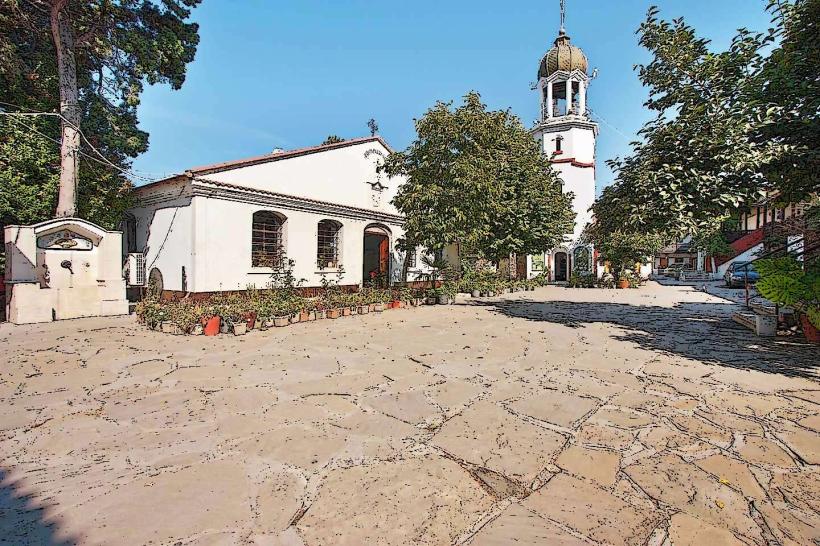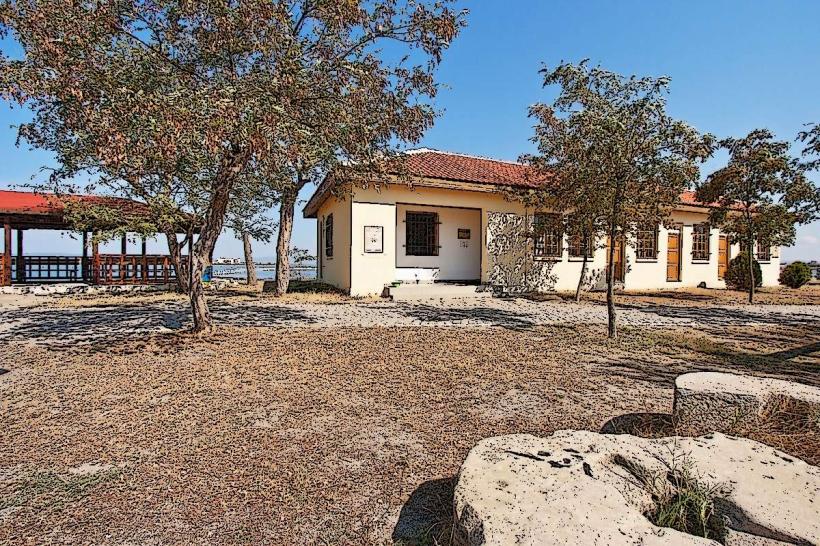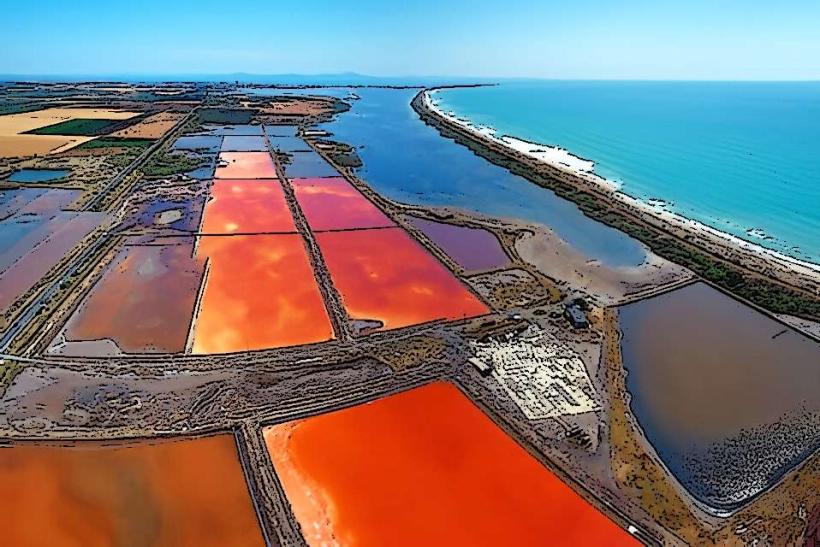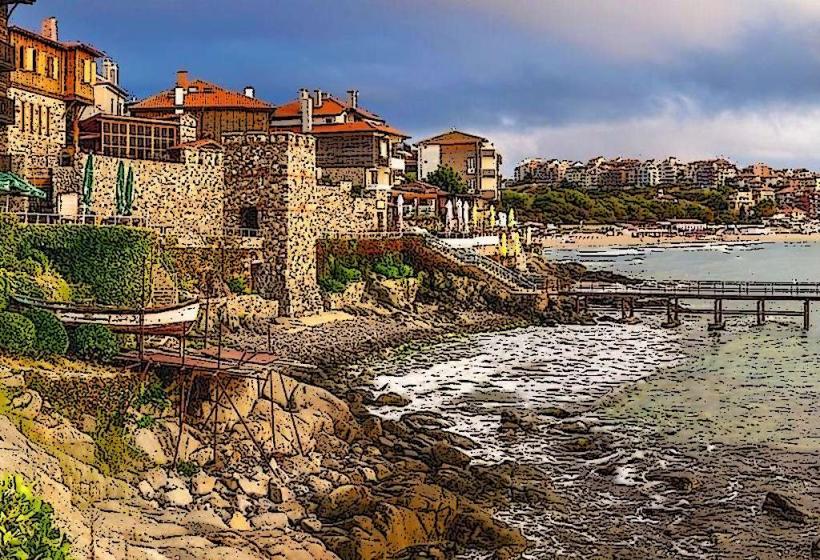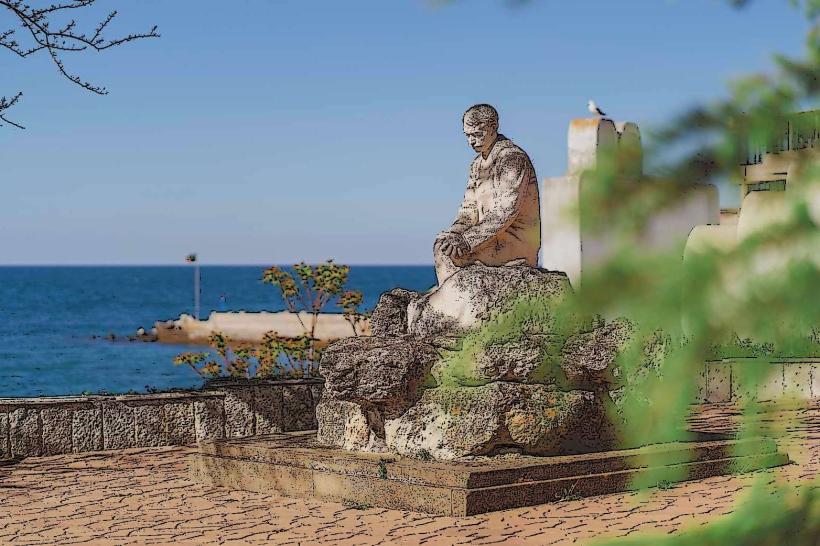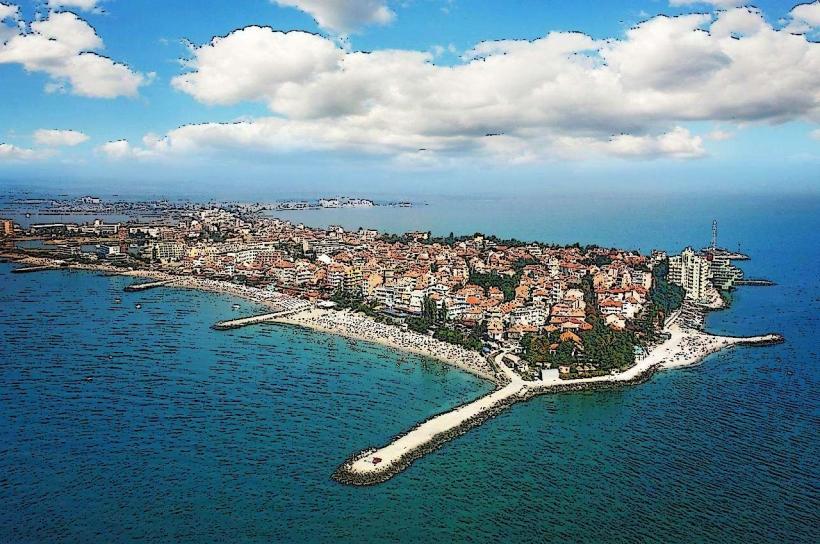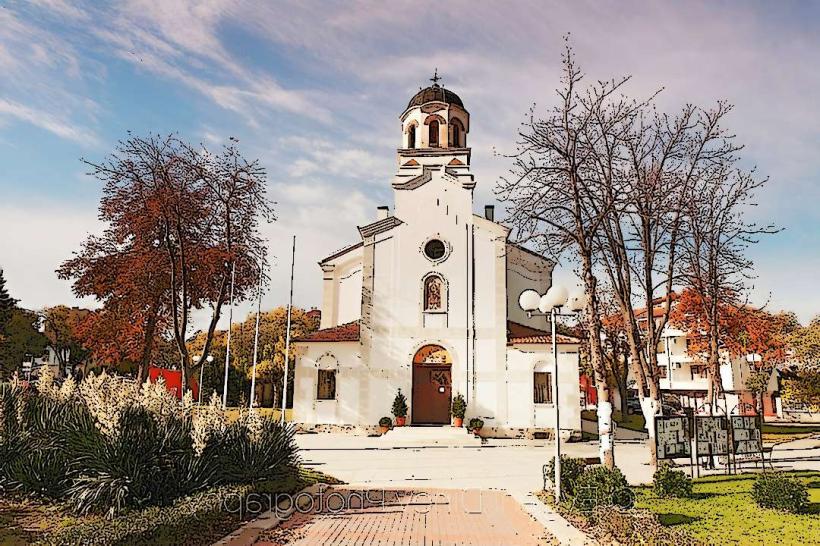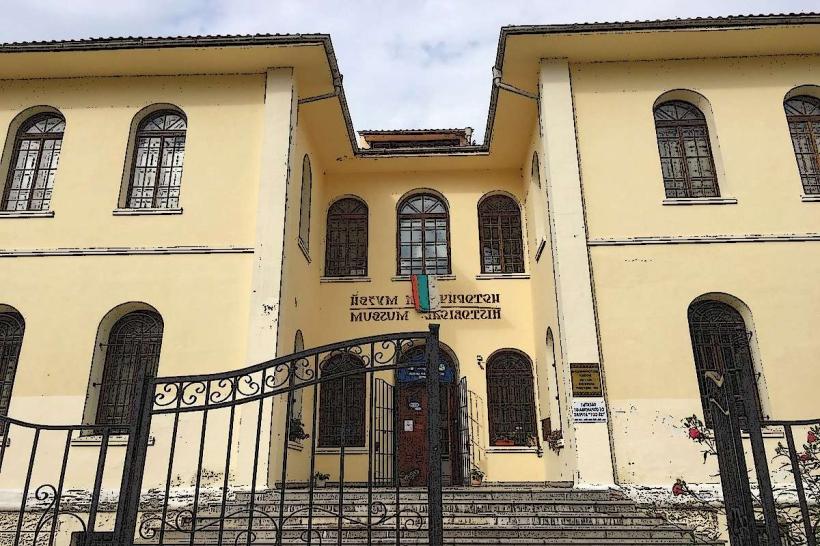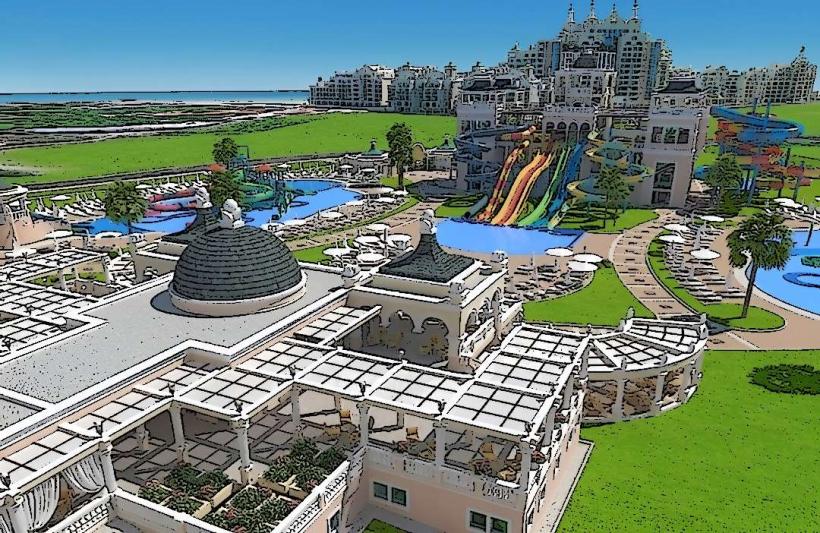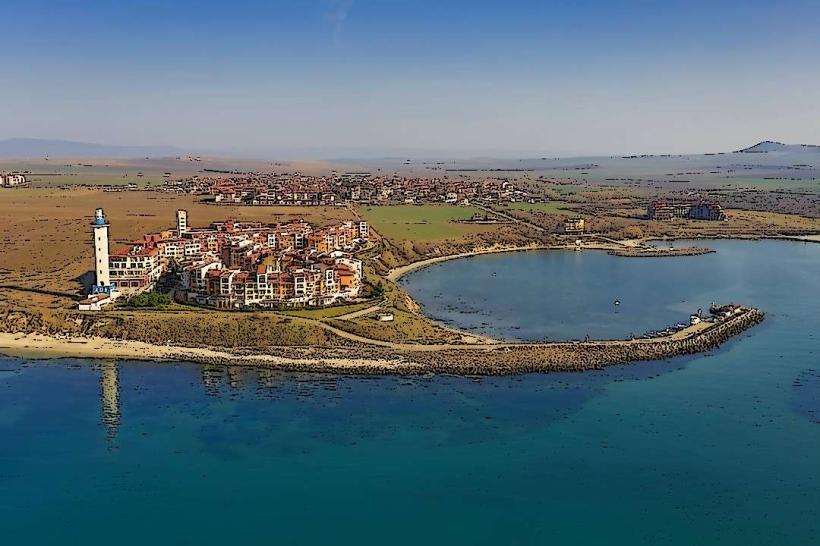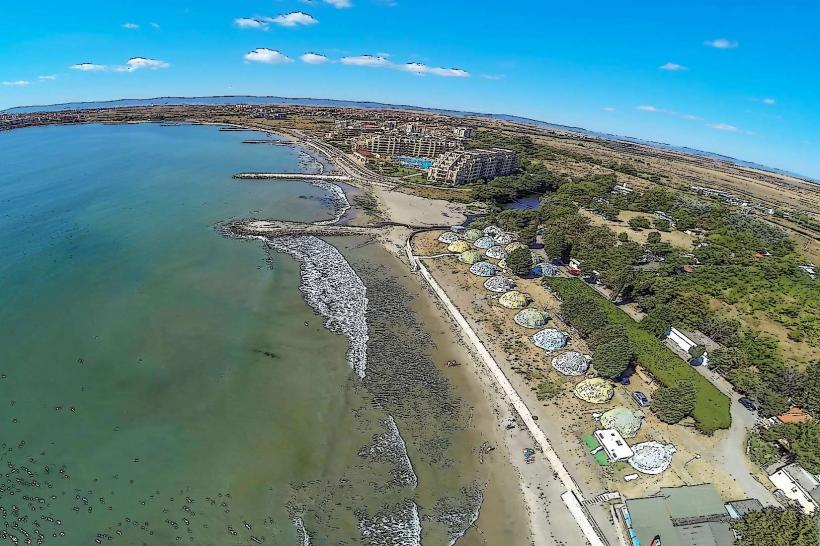Information
Landmark: Thracian Tomb of PomorieCity: Pomorie
Country: Bulgaria
Continent: Europe
Thracian Tomb of Pomorie, Pomorie, Bulgaria, Europe
The Thracian Tomb of Pomorie, also known as the Thracian Domed Tomb or the Kouposh Tomb, is one of the most remarkable and mysterious ancient monuments in Bulgaria. It stands as a unique testament to the funerary architecture of the Thracians, combined with Roman influences.
Here’s a detailed overview:
1. Historical Background
The tomb dates back to the 2nd–3rd century AD, during the Roman period, but it was constructed by or for the local Thracian aristocracy.
Likely used as a heroon-a tomb for a deified Thracian noble or priest, possibly someone who was worshipped after death.
The region of Pomorie (ancient Anhialo) was an important cultural center in Thracian and Roman times, and this tomb reflects that fusion.
2. Architectural Features
Location: Situated about 1.5 km northwest of Pomorie, near the road to Burgas.
Construction: Made entirely of stone and bricks, in a highly unusual architectural style for the region.
Structure:
A circular burial chamber, around 11 meters in diameter and 8 meters in height.
The most distinctive feature is the central hollow column, which is spiral-shaped inside and opens at the top. It supports the semi-spherical dome and might have had a symbolic or spiritual function.
A long, vaulted entrance corridor (dromos) leads to the central chamber.
The floor was likely covered with mosaics or decorative tiles, though they have not been fully preserved.
The combination of brickwork, concrete, and precise geometry is considered technically advanced for its time.
3. Function and Symbolism
Most scholars believe it was not just a tomb, but a sanctuary used for ritual ceremonies and possibly hero worship.
The hollow column may have served astronomical or spiritual purposes, possibly related to sunlight, ventilation, or sacred rituals.
Its grandeur suggests it belonged to a wealthy or influential person, possibly a Thracian priest-king or ruler.
4. Archaeological Significance
The tomb is one of a kind in Bulgaria and has no precise parallel in Thracian or Roman funerary architecture.
It is a protected cultural monument and an important tourist attraction, managed by the Pomorie Historical Museum.
Artifacts discovered in or near the tomb include ceramics, coins, and funeral items, many of which are now displayed in the museum.
5. Visiting Information
The site is open to the public, usually seasonally, with limited access during winter months.
Visitors can enter the tomb, walk through the dromos, and explore the main chamber.
Guided tours are available, often in Bulgarian and English.
The area around the tomb is peaceful and allows for quiet exploration.
6. Importance
The Thracian Tomb of Pomorie is a symbol of the region’s ancient roots and its spiritual heritage.
It is part of Bulgaria’s cultural and historical tourism route, alongside other famous Thracian tombs in Kazanlak and Sveshtari.
Its unique design continues to fascinate architects, historians, and archaeologists alike.
This tomb is not only a site of archaeological interest but also a mystical and cultural landmark, reflecting the deep and layered history of ancient Thrace.

